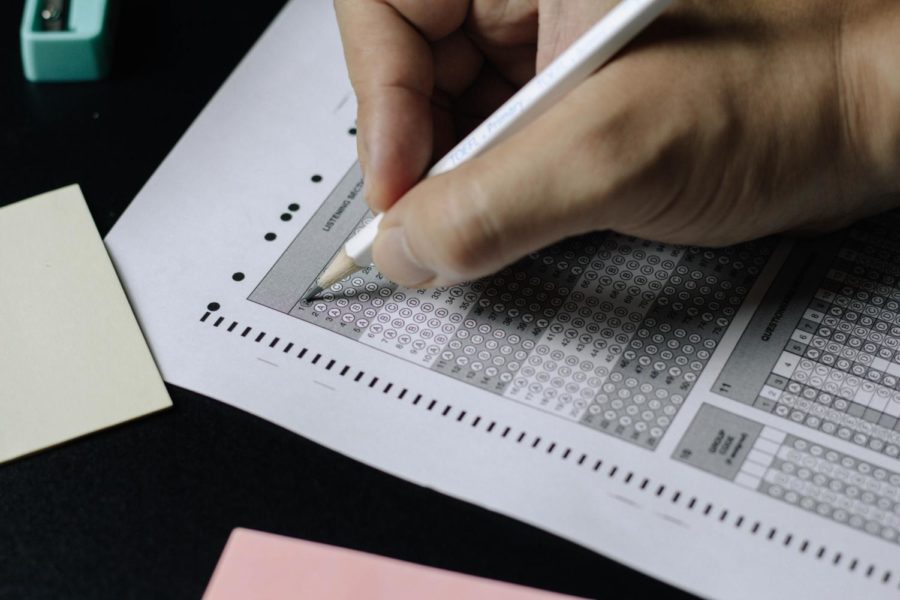Students Contemplate Whether They Should Take the PSAT
September 5, 2021
Sophomore Leila Maboudian frantically scribbles down answers, her stress pushing her to write faster. The heat of the moment burns away at her memory, the carefully memorized grammar rules burning to ash in her inferno of anxiety. She’s worried over this test for months after talking with her parents and friends and deciding to take it. When she finally finishes, she breathes a sigh of relief. But she knows that this hurdle, the challenging Preliminary Scholastic Aptitude Test (PSAT), is nothing compared to the paramount SAT, which she’ll have to take in just a year.
The PSAT is a standardized test made to prepare students for taking the Scholastic Aptitude Test (SAT). The exam contains a grammar-focused English section and an algebra-focused math section. Miramonte is offering the test to sophomores and juniors for a $30 fee. The test is on Oct. 16 and the deadline to register is Sept. 10. Juniors’ scores will be recorded for the National Merit Scholarship program, which awards college scholarships to the highest scorers on the PSAT, but sophomores primarily take the test to familiarize themselves with the content and structure of the SAT.
“I want to take the PSAT as preparation for the SAT because I have heard from several people that it’s not an easy test to take,” Maboudian said. “I would say I’m a little more nervous for the English section, because math is very structured, and is something that is easy to learn with practice, whereas English takes a lot of focus.”
SSWhile many students see benefits in taking the PSAT, some prefer to focus on their schoolwork and other commitments instead of studying for a test that ultimately does not impact their chances of being accepted to college or their grades.
“I’m not sure if I will be taking the PSAT because I have work to do for other classes and extracurricular activities,” sophomore Gen Korklan said. “I don’t know if I’ll have time to do all that and get ready for the PSAT. I think I might be able to be ready for the PSAT next time because I’ll probably have a better understanding of how it works and will be able to be more prepared.”
Despite the extra time commitment, some students still choose to take the PSAT “I bought a prep book, so I’ve been going through that.I also saw that there was some Khan Academy stuff, so if I still feel unprepared I can use that, ” Maboudian said.
Some choose not to sign up for the PSAT simply because they don’t have clarity on the details of the test. They aren’t sure if the SAT is still a requirement for colleges after many schools stopped requiring students to submit scores due to the pandemic. Chemistry teacher Jamie Bascom has a unique perspective on this confusion as both a parent and a teacher. “We don’t know which schools we’re going to apply to yet. The problem is that we don’t know if the SAT is ultimately something we need. I’m going to encourage my students to take it because it’s hard to tell this year, and in a year or two you could still change your mind about taking the SAT. It’s better to have practice taking a standardized test because we don’t have many of those tests, so every opportunity to practice is going to be really valuable,” Bascom said.
A year later Maboudian, now a junior, once again prepares for an exam, though this time the consequences are real; it’s the SAT. She reflects on how her decision to take the PSAT the previous year affected her ability to prepare for this exam. Before taking the PSAT last year, she studied as if she was blindly lost in a forest; now, she has a map to guide her away from past mistakes. When the day finally comes, there is still a blazing fire in her, but one of confidence and preparation, not anxiety.








